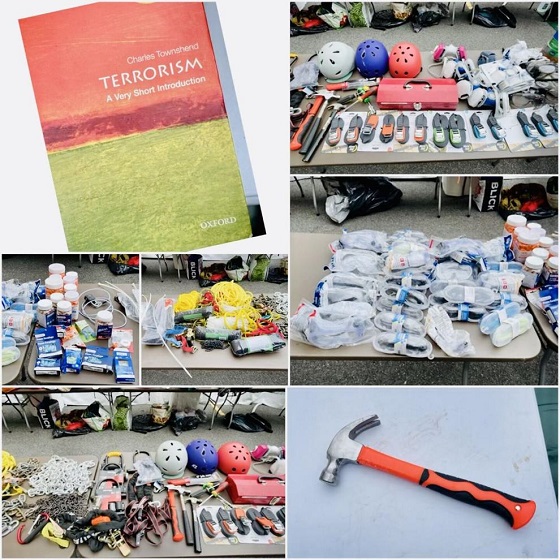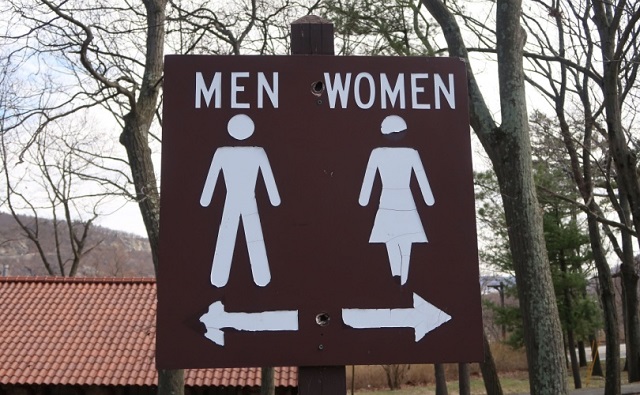National
CBSA Union president – ArriveCan wasn’t needed
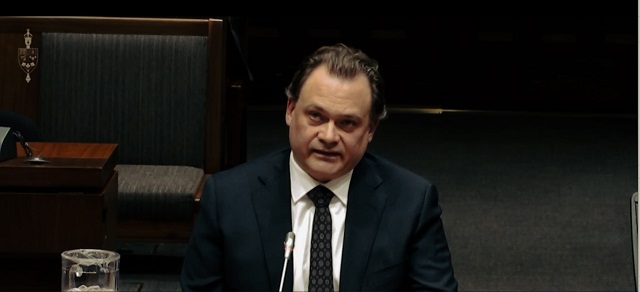
PACP’s Meeting No. 105 sheds light on the profound inefficiencies plaguing the Trudeau administration, as Mark Weber testifies on the ArriveCan’s failures and the cultural rot within the CBSA
In the latest episode of the ongoing saga that encapsulates the depth of dysfunction under the Trudeau administration, Meeting No. 105 of the PACP – Standing Committee on Public Accounts unfolded in what can only be described as a monumental barn burner. The spotlight shone intensely on Mark Weber, the resolute President of the Customs and Immigration Union, who took the stand to expose the underbelly of inefficiency and mismanagement festering with the ArriveCan from the perspective from his members on the ground.
In a testament to the burgeoning controversy, Weber’s testimony sliced through the facade of bureaucratic efficiency, laying bare the consequences of a government more concerned with image than substance. The ArriveCan debacle, with its spiraling $60 million expenditure, stands as a glaring symbol of the Trudeaus approach: reckless spending which is severely lacking accountability.
The session was a spectacle of irony and disarray that bordered on the comedic, as the theater of government dysfunction unfolded before our very eyes. Amidst the turmoil, Liberal MP Brenda Shanahan stood up, emblematic of the coalition’s unwavering detachment from reality, posing the question to Mark Weber:
“Can you please tell us what you have heard from your union members in terms of how ARRIVE can provide efficiencies to the previous paper-based system?”
Before diving into Weber’s response, it’s crucial to note the backdrop against which this farce was set. Here we had the Liberal party, clinging with desperate fingers to the thin reed of “efficiency,” as if this single word could magically overshadow the colossal sum of $60 million funneled into the abyss for an app that, as it turns out, was about as necessary as a screen door on a submarine.
Mark Weber’s response was as pointed as it was illuminating, a stark contrast to the fluff and bluster we’ve come to expect from the powers that be.
“In terms of the information that we needed for our purposes for customs officers, really all we needed was to be able to verify that the person was vaccinated, which everyone was able to do simply by showing us their vaccination on their phone or a printed-out copy.”
There it was, the moment of truth – the revelation that the taxpayer, the everyday Canadian, had been bilked out of $60 million for a redundant app, an app that wasn’t even a requirement in the practical conduct of our border security.
Weber then laid bare the operational fiasco that was the app’s implementation. The hours squandered on the ground, the bureaucratic hoops jumped through for information that seemed to serve no one, certainly not the Canadian public.
“It seemed like we were spending our time collecting information for others that in large part we don’t know or don’t think was used,”
he dissected mercilessly. And then came the kicker, the detail that should make every Canadian’s blood boil:
“As far as I know, no one verified where anyone was staying. You know, the hundreds of hours that our officers spent helping people collect this information at the border we don’t believe was really used at all.”
Mark was probed about another critical aspect: the training—or lack thereof—that his union members received on the proper use of the ArriveCan app. With a shake of his head, Mark’s response was disheartening but unsurprising. The training was minimal, leaving border guards underprepared and travelers equally bewildered. This lack of instruction exacerbated an already tense situation, pitting frustrated travelers against equally frustrated border personnel, a recipe for chaos and inefficiency at our nation’s gateways.
Mark didn’t stop there. He acknowledged that while technology can be a powerful ally, it is not a panacea for all woes. He underscored a fundamental truth: an app is merely a tool, and like all tools, its effectiveness is contingent upon the skill and expertise of those wielding it. In the realm of national security and border control, this means boots on the ground—trained, knowledgeable personnel ready to act. Mark stressed that despite the high hopes pegged on technological advancements like automated passport checkouts, these innovations have not significantly reduced wait times at airports. The anticipated streamline and efficiency, much vaunted by proponents of the app, have yet to materialize in any tangible form.
This situation leaves us with a glaring juxtaposition: on one side, a government heralding the dawn of a new, tech-savvy era in border management; on the other, the stark reality of frontline workers grappling with underpreparedness and ineffective tools. The mismatch between the glittering ideal and the gritty reality underscores a profound disconnect.
Mark painted a picture of an organization beset by inefficiency and bureaucratic bloat. He described a surreal scenario where the hierarchy was so top-heavy that there were instances of four superintendents tasked with supervising merely two employees. This, he argued, was indicative of a toxic culture that not only hampered operational effectiveness but also left little room for accountability.
More alarmingly, Mark highlighted a significant gap in the organization’s framework: the lack of whistleblower protection. This absence of safeguards for those willing to speak out against malpractices further entrenched the culture of silence and complicity, stifling any potential for reform or improvement from within.
In response to these criticisms, the Liberals and NDP, now bound in a coalition, deflected by invoking the specter of the Harper era, suggesting that the policies instituted during his tenure continued to cast a long shadow over the CBSA. However, this attempt to pivot away from current issues falls flat. The reality is, with the power and mandate to govern, the coalition could have engaged with the union or the CBSA long ago to address and reverse any contentious Harper-era policies. Yet, they chose inaction.
My fellow Canadians, as we close this chapter, let’s reflect on a critical issue that has metastasized within our public institutions—a malignancy that threatens the very integrity of our governance: the lack of whistleblower protection.
This deficiency, a silent but deadly cancer, undermines the moral and operational foundation of our services. When our dedicated public servants, those tasked with safeguarding the public good, stand muted, crippled by the fear of reprisal, we face a grave crisis. How can we expect improvement or rectitude within our systems if those witnessing wrongdoings remain shackled by fear? A system that stifles the courageous voices calling out corruption or malpractice is a system that has failed its people.
Consider the case of Luc Sabourin, a former employee of the CBSA. His experience is a stark illustration of this systemic failure. Sabourin spoke out, did his civic duty by reporting wrongdoing within his organization. But what reward did his honesty fetch? Bullying, ostracization, and a clear message: silence is safer than integrity. This is the dire consequence of a system that fails to shield its truth-tellers.
This, my fellow Canadians, is unacceptable. It’s high time we demand more than just superficial changes and empty promises from the Liberals and the NDP. Mere band-aid solutions and deflections to past administrations will not heal the deep-seated issues within our governance. The controversies swirling around instruments like ArriveCan and the toxic culture within the CBSA demand rigorous scrutiny, not mere sidestepping or finger-pointing. The swamp of corruption and malaise within our government requires draining, not mere change of guards or partisan rhetoric. Pierre Poilievre and his team, along with every conscientious lawmaker and citizen, must grab their metaphorical shovels. It’s time to excavate the entrenched bog of mismanagement and cleanse the festering wound of corruption that plagues our country.
Let this be a call to action: a plea for transparency, accountability, and genuine reform. For the health of our democracy, for the integrity of our institutions, and for the well-being of every Canadian, the time to act is now. Let’s unite in this critical endeavor to rejuvenate our system, to transform it into one that truly serves, protects, and represents us all.
For the full experience subscribe to The Opposition with Dan Knight .
Censorship Industrial Complex
Elon Musk skewers Trudeau gov’t Online Harms bill as ‘insane’ for targeting speech retroactively

From LifeSiteNews
It literally spits in the face of all Western legal traditions, especially the one about only being punished if you infringed on a law that was valid at the time of committing a crime
Billionaire tech mogul Elon Musk remarked that it is “insane” that the Trudeau government’s proposed “Online Harms” bill would target internet speech retroactively if it becomes law.
“This sounds insane if accurate!” wrote Musk on Tuesday, in reply to an X (formerly Twitter) user named Camus who detailed that Prime Minister Justin Trudeau’s government’s Bill C-63, the Online Harms Act, could see Canadians fined or even jailed for things posted on the internet prior to the bill becoming law.
Camus noted how Bill C-63 could give police “the power to retroactively search the Internet for ‘hate speech’ violations and arrest offenders, even if the offence occurred before the law existed.”
A brief time later, X’s “CommunityNotes” program – a system in which users collectively “fact-check” information shared on the site –confirmed what Camus had written was accurate, quoting a section of the bill’s text.
“Part 3 of Bill C-63, which is still at first reading stage and is not yet law, adds to the Canadian Human Rights Act: ‘a person communicates or causes to be communicated hate speech so long as the hate speech remains public and the person can remove or block access to it,’” CommunityNotes wrote.
Camus observed about Bill C-63 that the “Trudeau regime has introduced an Orwellian new law.”
“This new bill is aimed at safeguarding the masses from so-called ‘hate speech,’” he wrote. “The real shocker in this bill is the alarming retroactive aspect. Essentially, whatever you’ve said in the past can now be weaponized against you by today’s draconian standards.”
Camus observed how historian Dr. Muriel Blaive has weighed in on “this draconian law,” labeling it outright “mad.”
“She points out how it literally spits in the face of all Western legal traditions, especially the one about only being punished if you infringed on a law that was valid at the time of committing a crime,” wrote Camus.
Bill C-63 was introduced by Liberal Minster Attorney General Arif Virani on February 26 and was immediately blasted by constitutional experts as troublesome.
The bill, if passed, will modify existing laws, amend the Criminal Code as well as the Canadian Human Rights Act, in what the Liberals claim will target certain cases of internet content removal, notably those involving child sexual abuse and pornography.
However, the bill also seeks to police “hate” speech online with broad definitions, severe penalties, and dubious tactics.
Trudeau’s new bill a ‘terrible attack’ on speech, Musk warns
On Tuesday, well-known Canadian psychologist Jordan Peterson replied to Musk by saying about Bill C-63, “It’s much much worse than you have been informed: plans to shackle Canadians electronically if accusers fear a ‘hate crime’ might (might) be committed.”
“It’s the most Orwellian piece of legislation ever promoted in the West.”
Musk replied to Peterson by saying Bill C-63 is “[a] terrible attack on the rights of Canadians to speak freely!”
Other notable X users, such as Canadian lawyer David Freiheit, who is known online as Viva Frei, confirmed Musk’s concern that Bill C-63 could go after X users from posts/tweets made long ago.
“It’s pretty close to accurate, Elon. If someone has the ability to delete a ‘hate speech’ tweet / post and does not, and someone else retweets that tweet, it would qualify as ‘publication’ under the law and be sanctionable,” he wrote.
Details of the new legislation to regulate the internet show the bill could lead to more people jailed for life for “hate crimes” or fined $50,000 and jailed for posts that the government defines as “hate speech” based on gender, race, or other categories.
The bill also calls for the creation of a digital safety commission, a digital safety ombudsperson, and a digital safety office.
The Justice Centre for Constitutional Freedoms (JCCF) has said Bill C-63 is “the most serious threat to free expression in Canada in generations. This terrible federal legislation, Bill C -63, would empower the Canadian Human Rights Commission to prosecute Canadians over non-criminal hate speech.”
In a recent podcast, Peterson and Queen’s University law professor Bruce Pardy warned of the “totalitarian” impact Trudeau’s new Online Harms bill will have on Canada.
Peterson observed that the Trudeau government is effectively “establishing an entirely new bureaucracy” with an “unspecified range of power with non-specific purview that purports to protect children from online exploitation” but has the possibility of turning itself into an internet “policing state.”
National
Taxpayers Federation presents Teddy Waste Awards for worst government waste

From the Canadian Taxpayers Federation
Author: Franco Terrazzano
The Canadian Taxpayers Federation presented its 26th annual Teddy Waste Awards to CBC President Catherine Tait for handing out millions in bonuses while announcing hundreds of layoffs; the Mission Cultural fund for its sex-themed artistic performances; and the city of Regina for its Experience Regina rebrand fiasco.
“Because it spent buckets of taxpayer cash funding birthday parties and photo exhibits for celebrities, and making things awkward for countries around the world with sex-themed artistic performances, the Mission Cultural Fund earned the Lifetime Achievement award for waste,” said Franco Terrazzano, CTF Federal Director.
“Tait is winning a Teddy Award because she handed out millions in bonuses despite announcing hundreds of layoffs just before Christmas, only to turn around and beg for more taxpayer cash.
“The Alberta Foundation for the Arts spent tens of thousands flying an artist to New York, Estonia and South Korea so she could flop around on a futon for a couple minutes and showcase a painting that can best be described as ants on a pop tart.
“The city of Regina came up with snappy slogans like, ‘Show us your Regina,’ and ‘Regina: the city that rhymes with fun.’ After spending $30,000 and facing backlash, the city ditched the entire rebrand so it won a Teddy Waste Award.”
The Teddy, a pig-shaped trophy the CTF annually awards to governments’ worst waste offenders, is named after Ted Weatherill, a former federal appointee who was fired in 1999 for submitting a raft of dubious expense claims, including a $700 lunch for two.
This year’s winners include:
- Municipal Teddy winner: The city of Regina
Regina spent $30,000 rebranding Tourism Regina to Experience Regina. But after facing backlash, the city scrapped the rebrand. And Regina taxpayers are out $30,000.
- Provincial Teddy winner: Alberta Foundation for the Arts
The Alberta Foundation for the Arts spent $30,000 flying an artist around the world to produce art few taxpayers would ever willingly buy or pay to see.
- Federal Teddy winner: CBC President Catherine Tait
Tait handed out $15 million in bonuses to CBC brass in 2023 as she announced hundreds of layoffs weeks before Christmas and lobbied the government for more money. Bonuses at the CBC total $114 million since 2015.
- Lifetime Teddy winner: The Mission Cultural Fund
The Mission Cultural Fund spent $10,000 on a birthday party for Margaret Atwood in New York, $52,000 for a photo exhibit for rockstar Bryan Adams, $8,800 on a sex toy show in Germany and $12,000 for senior citizens to talk about their sex lives in front of live audiences.
You can find the backgrounder on this year’s Teddy Waste Award nominees and winners HERE.
-
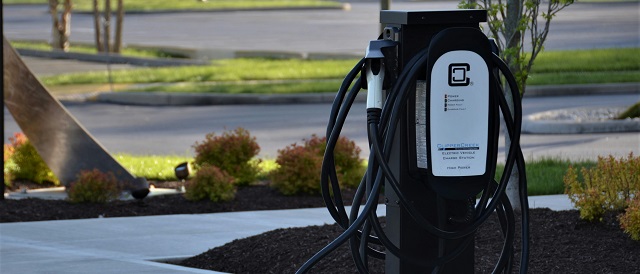
 Automotive1 day ago
Automotive1 day agoNew Analysis Shows Just How Bad Electric Trucks Are For Business
-

 Alberta Sports Hall of Fame and Museum1 day ago
Alberta Sports Hall of Fame and Museum1 day agoTHE HALFTIME REPORT News from the Alberta Sports Hall of Fame
-
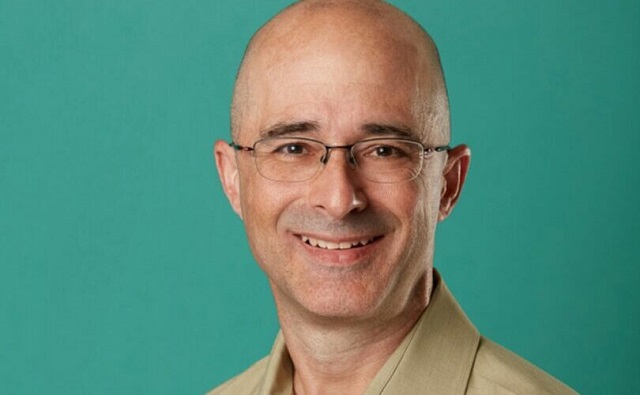
 COVID-191 day ago
COVID-191 day agoQuebec microbiology professor fired for his public opposition to COVID shots
-
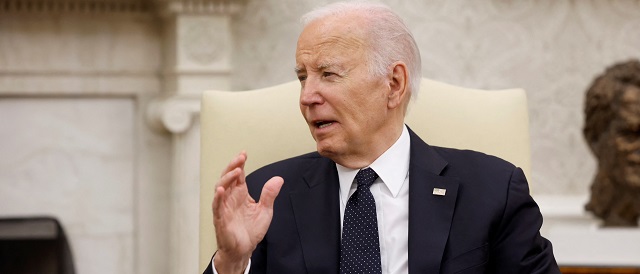
 Censorship Industrial Complex1 day ago
Censorship Industrial Complex1 day agoBiden Agencies Have Resumed Censorship Collaboration With Big Tech, Dem Senate Intel Chair Says
-

 COVID-191 day ago
COVID-191 day agoElon Musk’s X will help fund COVID shot critic’s ongoing legal battle against Canadian university
-

 Censorship Industrial Complex22 hours ago
Censorship Industrial Complex22 hours agoInternet censorship laws lead a majority of Canadians to believe free speech is threatened: poll
-

 Education2 days ago
Education2 days agoSchools shouldn’t sacrifice student performance to vague notions of ‘equity’
-

 International2 days ago
International2 days agoWhy Biden’s Gaza refugee plan is a hard hell no

